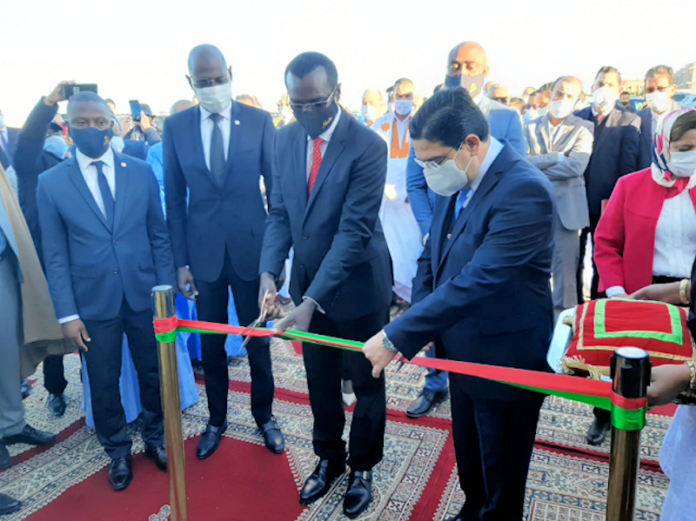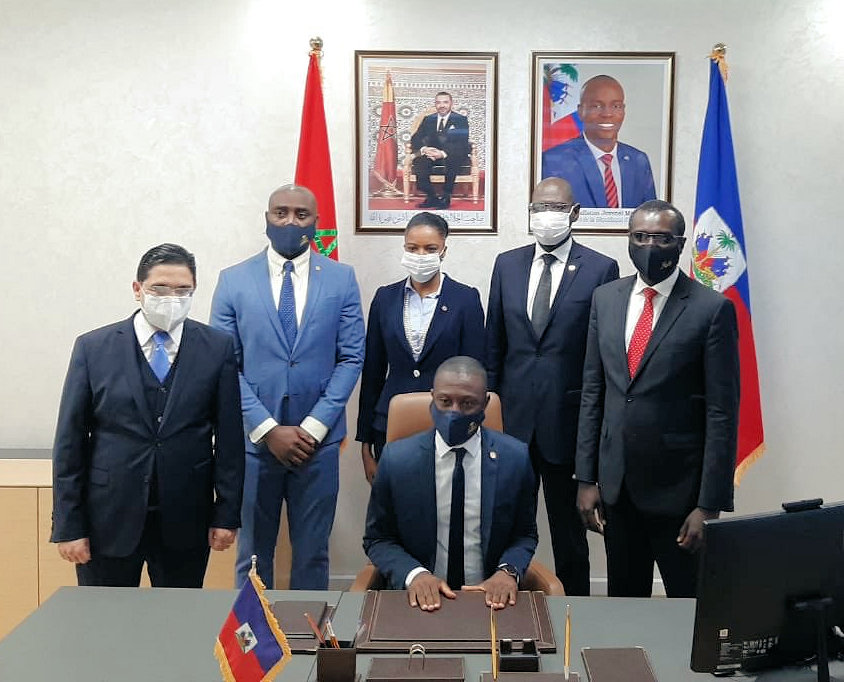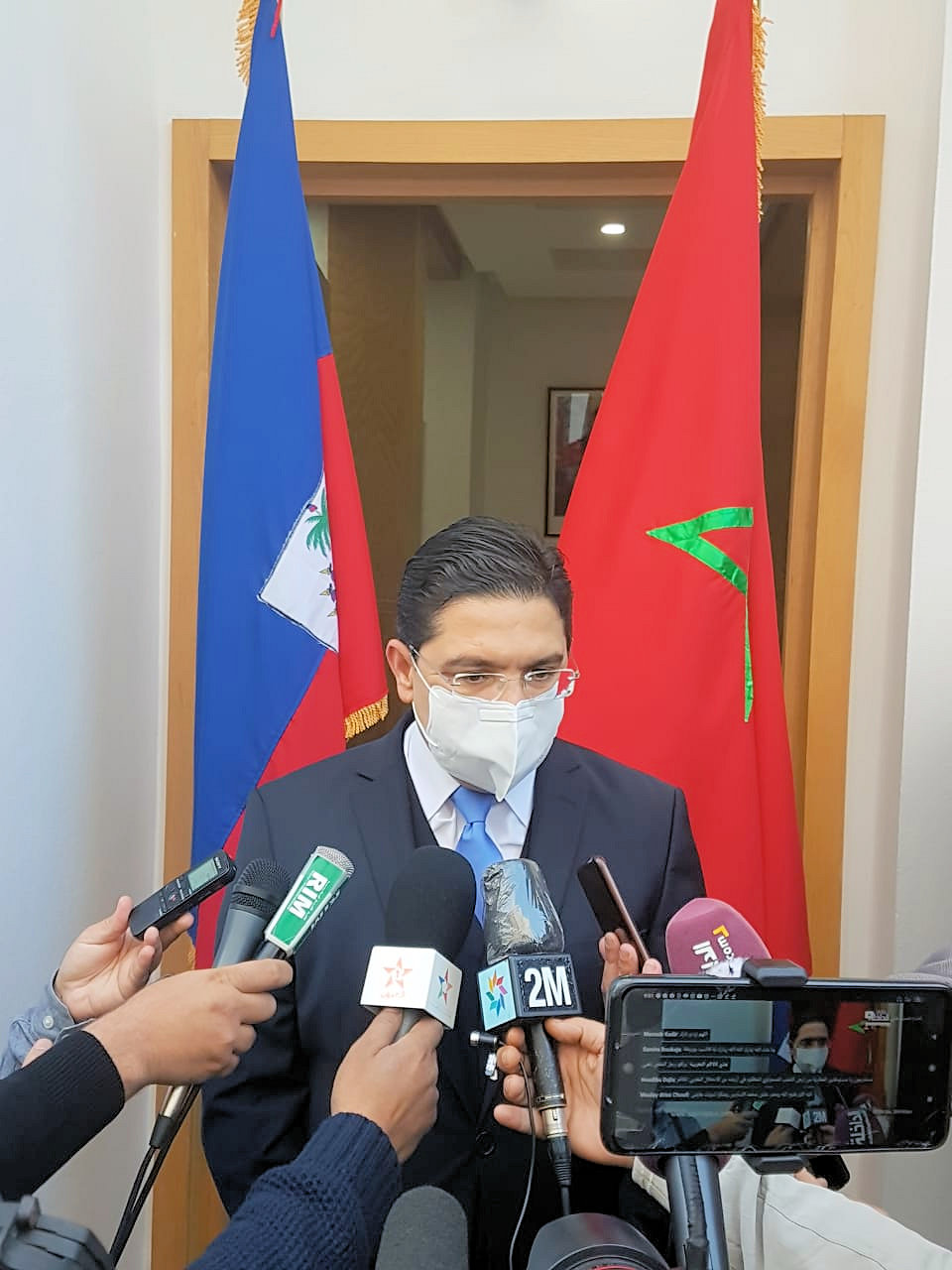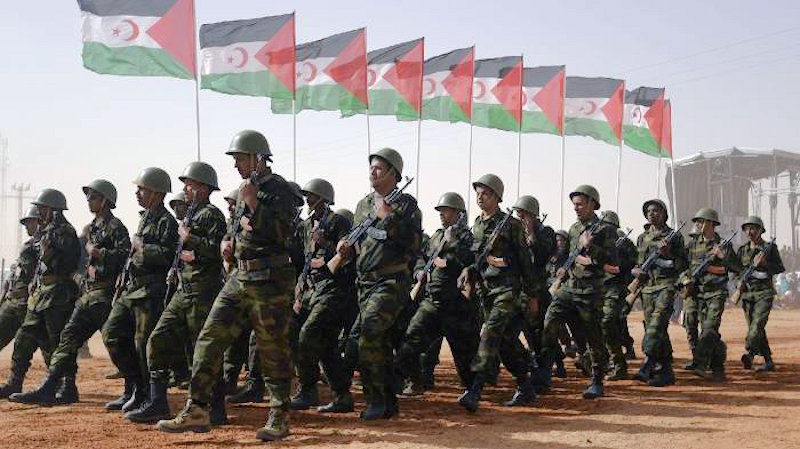
Haiti was not only the first nation of Latin America. In one sense, it was the first African colony to free itself, too. After all, in 1791, half of the 500,000 slaves who launched the 13-year revolution in the French colony of Saint Domingue had been born in Africa.
So it is particularly shameful that Haiti is the first Latin American nation to formally recognize Morocco’s illegal claim on Western Sahara, the last African colony.
Haiti did so by opening a consulate on Dec. 14 in the city of Dakhla, located on Western Sahara’s Atlantic coast.

The Haitian consulate’s opening there, only its second on the African continent, was instigated by President Donald Trump’s lame-duck administration in coordination with Israel, which Morocco agreed to recognize on Dec. 10, making it the fourth Arab country – after Bahrain, the United Arab Emirates, and Sudan – to do so in 2020.
To win Morocco’s agreement to establish formal ties with Israel (there had been secret relations for decades), the U.S. recognized Morocco’s claim over Western Sahara, giving the finger to the United Nations, which recognizes Western Sahara’s bid for independence. It was the U.S. Embassy in Israel’s website which published the Trump White House’s Dec. 4 “Proclamation on Recognizing The Sovereignty Of The Kingdom Of Morocco Over The Western Sahara.”

The proclamation asserts that “an independent Sahrawi State is not a realistic option” and that Morocco’s annexation of Western Sahara “is the only feasible solution” to a three-decade-old stalemate over the territory’s fate.
The proclamation announces that the U.S. “will open a consulate in the Western Sahara territory, in Dakhla, to promote economic and business opportunities for the region.”
Haiti’s President Jovenel Moïse, who relies entirely on Washington for his political survival, was pressured to act as a pathetic second to Trump’s gambit.
Haiti’s Ambassador to Canada, Weibert Arthus, joined Morocco’s Foreign Minister Nasser Bourita in chairing the inauguration ceremony, attended mostly by a handful of Moroccan and Haitian diplomatic staff.
Spain colonized Western Sahara, a vast 103,000 square mile territory of mostly desert, in 1884. But, as anti-colonial struggles erupted across Africa in the 1960s and 1970s, the Polisario Front, representing the Western Sahara’s Sahrawi people, launched a national liberation struggle in 1973 to drive out the Spanish, who relinquished the Iceland-sized colony in 1975.
But Morocco’s King Hassan II immediately invaded, battling the Polisario Front for control of the area, renamed the Sahrawi Arab Democratic Republic.
In 1979, the UN General Assembly recognized the 600,000 Sahrawi people’s right to self-determination and the Polisario Front as their representative. (Even “President for Life” Jean-Claude “Baby Doc” Duvalier’s UN Ambassador voted in favor of the resolution.)
A guerilla war between Morocco and the Polisario Front spasmodically wore on for 16 years until 1991 when a cease-fire with the promise of a referendum on independence was negotiated. But Morocco has obstructed holding the referendum since then.

On Nov. 13, Morocco launched a military operation into the territory, crossing the UN-administered buffer zone (MINURSO) and forcing the Polisario Front to also abandon the truce. Morocco’s provocation was clearly spurred by Trump’s loss of the Nov. 3 U.S. election and the closing window of opportunity to join Trump and Israel in presenting the world with yet another brazen fait accompli, like moving the U.S. Embassy in Israel to Jerusalem or assassinating Iran’s foremost nuclear scientist.
“Trump’s decision changes nothing in legal terms over the question of Sahrawi because the international community does not recognize Moroccan sovereignty over Western Sahara,” a Dec. 10 Polisario Front statement said. “It constitutes a flagrant violation of the UN charter… and the founding principles of the African Union, and hampers the efforts of the international community in finding a peaceful solution to the conflict between the Sahrawi Republic and the Kingdom of Morocco.”
The Trump administration has been using Haiti as a pawn in another geo-political game around Venezuela.
From 2008 until 2018, Venezuela provided Haiti with $4.3 billion of cheap oil on generous credit terms, making Haiti one of its closest allies. But the Trump administration sharpened the sanctions imposed by the Obama administration on Venezuela, thereby sinking the oil subsidy program known as PetroCaribe.
“Trump’s decision changes nothing… because the international community does not recognize Moroccan sovereignty over Western Sahara”
With no more oil coming in and massive, weekly demonstrations demanding his resignation, President Jovenel Moïse bowed to Washington’s pressure to repudiate Venezuela. On Jan. 10, 2019, Haiti voted at the Organization of American States (OAS) to brand Venezuela’s President Nicolas Maduro as “illegitimate.” Haiti has also agreed to join the U.S.-directed Lima Group, a Venezuela-bashing gaggle of Washington’s vassal states.
The United Arab Emirates was the first Arab nation to snub the UN and open a consulate in Western Sahara in October. Fifteen African countries also have put consulates in Western Sahara, including the Comoros, Gambia, Guinea, Gabon, and Zambia.
Haiti was the first nation outside of Africa and the Arab world to establish a diplomatic presence in the illegally occupied Western Sahara. Haiti’s only other consulate on the continent is in Pretoria, South Africa.
In its statement, the Polisario Front urged the African Union (which recognizes it) and the UN to “put pressure on the Kingdom of Morocco to put an end to its occupation of Western Sahara.”
Ironically, Venezuela’s stand on Morocco’s aggression puts Haiti’s opportunism in sharp relief. Before the 1998 election of Hugo Chavez, Venezuela had diplomatic relations with only 20 African countries, Venezuela’s vice minister for Africa, Yuri Pimentel told the Grayzone’s Anya Parampil in October 2019. Today, Caracas has diplomatic relations with 55 nations in “mother Africa,” he said, “even though one of them is not recognized in the United Nations, because we recognize the Western Sahara as an independent country.”









